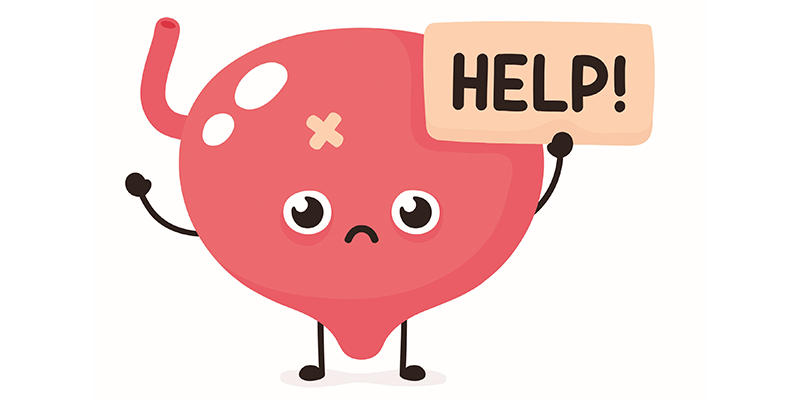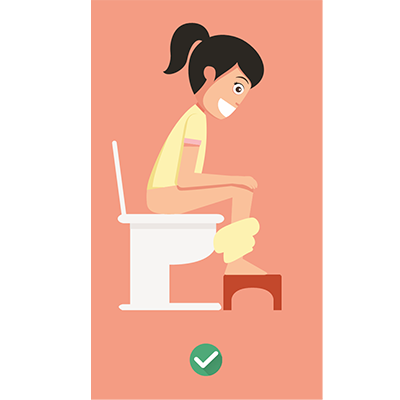Bladder Problems after Child birth or Surgery

How do I decrease bladder irritation?
Tell your nurse or physician if you experience any bladder irritation such as pain or discomfort when passing urine as they may need to test your urine for a UTI.
The below steps will also help to decrease the irritation:
- Drink lots of fluid,1 to 2 litres per day and up to 3 litres if you are breastfeeding
- Reduce fluids that irritate your bladder (caffeine, fizzy drinks, acidic drinks)
- Use the techniques listed in this leaflet to help you completely empty your bladder
When to seek help?
Speak to your Physician if you continue to have bladder problems for more than 2 weeks after you have been discharged from hospital. If you are unable to empty your bladder or experience any pain then please visit the emergency department.
|

|
This leaflet will provide you with information about some of the bladder problems that may happen after having a baby or surgery. These include: Dysuria: pain or discomfort when passing urine
- Bladder retention: difficulty emptying your bladder
- Loss of bladder sensation: difficulty feeling the urge to empty your bladder
- Urinary incontinence: leakage of urine
These problems can be related to the trauma of childbirth, to the anaesthesia you received or to the use of a urinary catheter (plastic tube) which is used to drain urine from your bladder. Bladder problems are also more likely to happen if you have had similar problems before.
In the first few days after childbirth you lose a lot of fluid related to the pregnancy. This can cause the bladder to fill quickly which can put you at risk of overstretching and damaging your bladder if it is not emptied regularly. If you cannot empty your bladder fully, you may also be at risk of developing a urinary tract infection (UTI).
What is normal for my bladder?
- Urinating (emptying your bladder) 4 to 6 times per day and 0 to1 times at night
- Passing 300 to 500ml of urine each time
- A feeling of relief or that you have completely emptied your bladder
- The color of your urine should be pale yellow
Why is the amount of urine in my bladder important?
- If you have more than 600ml of urine in your bladder you are at risk of over stretching your bladder and this makes complete emptying more difficult. The overstretched elastic walls of your bladder will be unable to push strongly enough to pass urine. This may also lead to overflow incontinence where excess urine leaks out of the bladder.
- If you have less than 200ml of urine in your bladder, then the bladder wall does not stretch enough to activate signals to tell you to go to the toilet or to ask the bladder to squeeze and empty the bladder completely.
How do I completely empty my bladder?
You can try these simple tips to help encourage your bladder to empty fully:
- Make sure you have good pain relief medicine. Your bladder doesn’t like to empty if you are experiencing pain
- Always sit on the toilet. Do not hover or squat over the toilet seat. Sitting on the seat allows your pelvic floor muscles to relax and your bladder to work effectively
What if I can’t empty my bladder (urinary retention)?
If you are having difficulty emptying your bladder or feel like you cannot empty your bladder completely, please tell your nurse or physician as soon as possible. You may need to have a catheter inserted into your bladder to allow your bladder muscle to rest and recover so that it can empty properly when the catheter is removed.
When the catheter is in your bladder, remember to drink fluids regularly. When the catheter is removed, your bladder may feel normal and empty well or there may be decreased sensation. Your physician will discuss this with you.
What if I do not feel the urge to empty my bladder or my urge is decreased?
If you have decreased bladder sensation you should use timed toileting. This means going to the toilet at regular intervals to avoid your bladder becoming overstretched.
- You can start by emptying your bladder every 2 to 3 hours. Make a note of the time so you can keep track of the next time you need to visit the bathroom
- Always urinate into the measuring container provided. An average size should be 300 to 500ml o If you pass less than 300ml then try waiting a little longer between bathroom visits o If you pass more than 500ml then try visiting the bathroom slightly more frequently or reduce your fluid intake if you feel like you are drinking more than 3 liters
- If your bladder sensation has not returned by the time you leave the hospital, continue timed toileting until you can feel your bladder fill and empty completely.
How can I encourage my bladder sensation to return?
- Drink fluids regularly, 2 to 3 liters per day which is roughly the same as one small bottle of water every hour when you are awake
- Go for regular walks to encourage normal bodily processes to occur
What is bladder irritation?
- Bladder irritation occurs when your bladder becomes more sensitive
- This can happen when you do not completely empty your bladder each time and the urine that remains in your bladder can irritate it
- Concentrated urine such as when you are dehydrated or haven’t drunk enough fluids, can irritate your bladder leading to feelings of having to pass urine often or urgently
- Certain fluids can also irritate the bladder for example drinks that contain caffeine (tea, coffee, coke), fizzy drinks including sparkling water and acidic drinks such as orange juice or lemonade
- The use of a urinary catheter can also cause bladder irritation or in some cases it can lead to a urinary tract infection (UTI)

